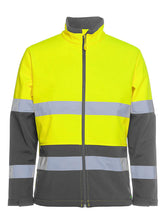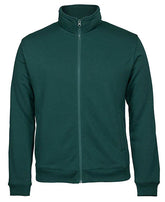Difference Between Overalls and Coveralls
If you are a tradie or you are just someone who started with any mini project, you should know about the protective work gear that can protect you from all sorts of elements that you come across at work.
If you are someone who has been into manual labour, you might have noticed the minor scratches and tears that appear here and there on your body, your clothes getting dirty from dust and dirt, and you can't stop coughing and wheezing. The knights in shining armour, the protective wears shield your attire from the onslaught of dust, paint, and the unexpected splatter ballet. So, no second thought, you need to get yourself some protective gear.
As we are discussing workwear, many consider overalls and coveralls the same. The unsung heroes— coveralls and overalls, you might think they're interchangeable, like peas in a pod, but oh dear, the devil is in the details. While both serve the same purpose, they can protect tradies against dirt. There are a few differences. Let's check them out.
Coveralls: The Guardian
The difference between coverall and overall is that it's a lifestyle decision that depends on the kind of work you're committed to. Coveralls, the suave and sophisticated ones among the protective wear, covers you from head to ankles. They're a one-piece wonder that wraps you in a sleek ensemble that you can zip up and feel completely protected.
Coveralls can give you complete cover protection while you are on your project. The coveralls also come in full or half-sleeved options. A full-sleeve coverall provides the look that covering your wrist can resemble a space suit; these types of coveralls are suitable for a job when you're dealing with more fine matters and dirt.
Overalls: The Quick Shield
Now, let's talk about overalls. When talking about overalls, they are the playful, laid-back comrades of coveralls. Overalls are ideal for garden works and small DIY projects; they consist of trousers with a bib that goes over your chest and attaches to the back. It's like wearing a stylish apron with bonus leg coverage.
They're the choice for the DIY enthusiast who wants to make a statement not just with their room makeover but with their fashion sensibility. Overall, it offers more flexibility. You can unhook that bib and let the breeze in. Overalls are the go-to for those who want protection without sacrificing a touch of freedom.
The Why Factor
While coveralls and overalls are knights in protective armour, the choice ultimately boils down to practicality. Coveralls, with their all-encompassing design, provide a seamless shield against the onslaught of mess. They're the practical choice for those who prioritize efficiency and want to minimize the risk of getting dirt on their outfit. It provides full coverage and is ideal for work environments with hazards or messy conditions. Coveralls may not be the best option for hot weather conditions.
The pros of overalls are that it is easy to layer over top of your dress and it is convenient to put on and take off. Overalls may not provide complete coverage, but they are more breathable, and people often need help finding the right size that can suit their body shape.







